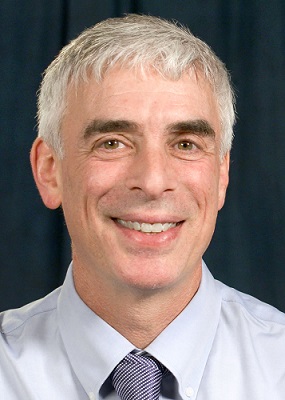Dr. Howard P. Safran is the chief of hematology and oncology at the Lifespan Cancer Institute at Rhode Island Hospital, The Miriam Hospital and Newport Hospital. A prominent expert in the development of new treatments for esophageal, pancreatic and rectal cancer, Safran is also the medical director for the Brown University Oncology Research Group.
Safran discusses the new Center for Innovative Cancer Research, an $800,000 center that will allow The Miriam to conduct more clinical trials for seriously ill cancer patients.
PBN: The Miriam Hospital is preparing to expand its offering of advanced cancer research treatments. How and when will this happen?
SAFRAN: While The Miriam already offers state-of-the-art cancer clinical research trials that provide Rhode Islanders access to some of the latest cutting-edge cancer drugs available, we’re embarking on a renovation to build a dedicated center that will allow us to increase the number of clinical trials available to patients.
Once finished in the coming year, the new Center for Innovative Cancer Research at The Miriam Hospital will be a four-bay, sun-filled, patient-centered environment that supports patients and their companions in a homelike setting for the often long chemotherapy days of phase one studies. This new space will further position our hospital as a leading provider for advanced, highly novel cancer treatments in our region and the nation.
PBN: What will this new center mean for local patients undergoing cancer care?
SAFRAN: This new center will have a tremendous impact on local cancer care. There currently are approximately 50 active clinical trials at the Lifespan Cancer Institute. In addition to increasing the clinical trials we offer and lessening the wait time to initiate new therapies, it will provide hope for patients whose cancers have become worse despite receiving all standard treatments and are searching for the most advanced options to extend their lives.
The center will ensure our Rhode Island patients do not have to travel out of state – or even leave their care team – to access the most advanced treatments and clinical studies. Everything available at those large cancer centers, we can do at The Miriam.
PBN: What are some of the elements that will make the center unique to The Miriam?
SAFRAN: The Miriam is renowned for its humanistic, patient-centered care, and at the time of the accreditation was one of only four hospitals in the country to receive the prestigious Magnet Award for nursing excellence six consecutive times. We will incorporate these same values into our Center for Innovative Cancer Research.
Our nurses make The Miriam very special, and they will be trained to lead these studies. Instead of having an oncology nurse who delivers the treatment and a separate clinical research associate that works with the data and samples, we’ll have nurses cross-trained in clinical research so they can do all the things a researcher would. This includes not only how a patient is responding to the drug, but more importantly, how the patient and their family are managing. This is advanced cancer research treatment combined with a level of personal, compassionate and palliative care that you just don’t find anywhere else.
PBN: Next month, The Miriam is hosting an event that was planned as an in-person fundraiser but changed to virtual last week as COVID-19 cases rise and the delta variant circulates. How significant is the event to the cancer center project?
SAFRAN: Philanthropy has long been a hallmark of The Miriam, and that’s as true today as when the hospital opened its doors nearly a century ago. Although we’re disappointed at having to pivot to virtual, it is absolutely the correct and best decision.
It also does not lessen the event’s significance. Funds raised during the auctions and fund-a-need portion of the September virtual gala will support the physical creation of the Center for Innovative Cancer Research and help to hire and train clinical research nurses. These are nurses who compassionately guide patients and families through a complex medical journey often marked with both hope and despair, since these patients’ illnesses have advanced to the point of needing promising but experimental therapies.
It is the generosity of our donor community that provides for resources and technologies that support innovative care and groundbreaking research. My wife, Nancy, and I are proud to be chairing this event, and it’d be impossible to put into words how grateful we are to the donors, sponsors and partners who are always by our side.
PBN: Do you expect to bring on additional specialists or hospital staff once the center is up and running?
SAFRAN: We absolutely plan to bring on additional specialists and increase the number of cancer research nurses on staff. Our cancer researchers collaborate with many innovative biotech companies that are rapidly making advances in cancer and we want to maximize our ability to deliver the highest level of advanced cancer care and clinical research right here in our patients’ community. And this includes having the personnel that can not only interpret accrued high-level molecular and genetic data, but who also provides a level of compassionate care that helps patients and families keep their physical and psychological selves strong.
Elizabeth Graham is a PBN contributing writer.













